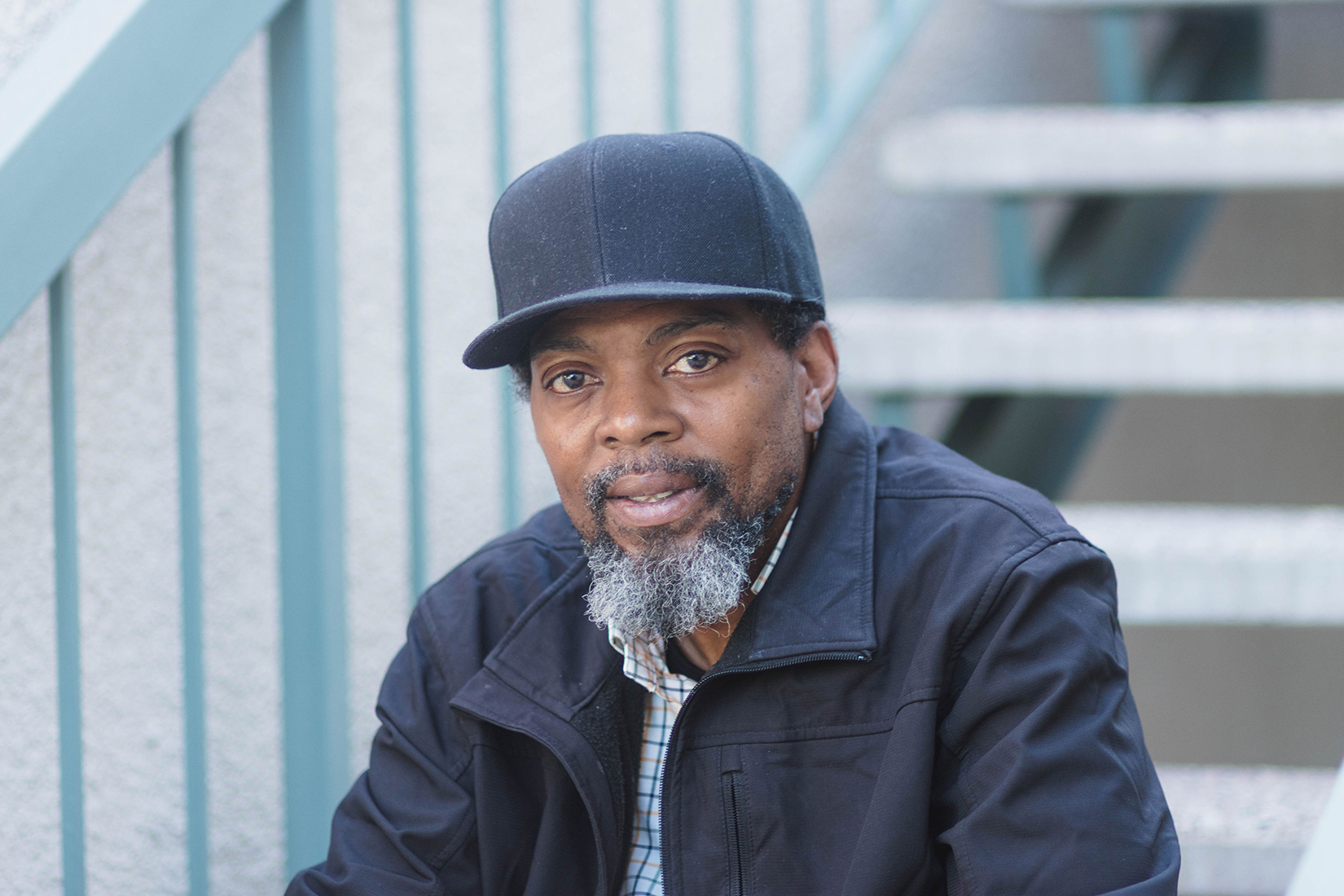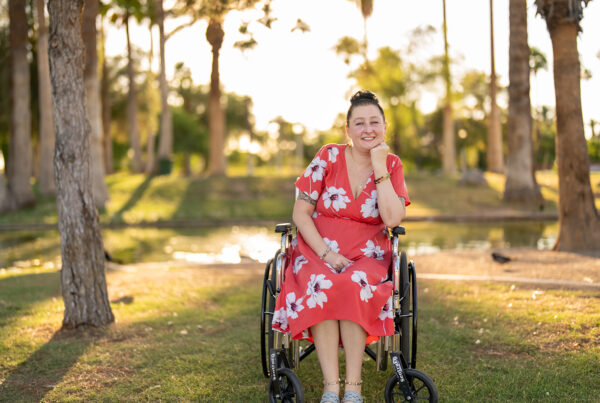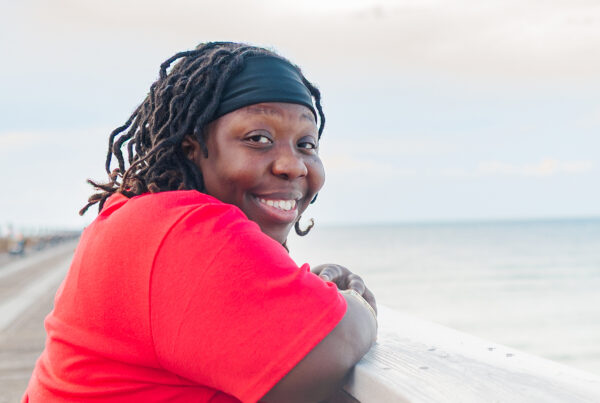For almost a year, Christopher had been struggling to maintain his battle with sarcoidosis, an autoimmune disorder that attacks the lungs and can lead to memory loss and blindness.
His vision was getting worse. The headaches were unbearable. As his health deteriorated, his everyday life began to fall apart.
There is treatment for this condition, but it would take three months before Christopher could get access to it. Unfortunately, just as he was starting to regain his health, he was arrested for an alleged altercation with another patient at the treatment center.
The police grabbed him from behind and threw him to the ground. “I was in a state of confusion, and I’m screaming, ‘Hey, I’m a patient!’” he shared with us. “I’m still bruised from the handcuffs.”
Christopher was booked into the Maricopa County Jail. Prosecutors charged him with trespassing, resisting arrest, assault of an officer, and reckless injury. A judge set his bail at $750. Christopher did not have this much money. Not even close. He was struggling with homelessness. His family didn’t have the resources to help. He felt his only option was to stay behind bars and fight for his innocence despite the toll it would take on his health.
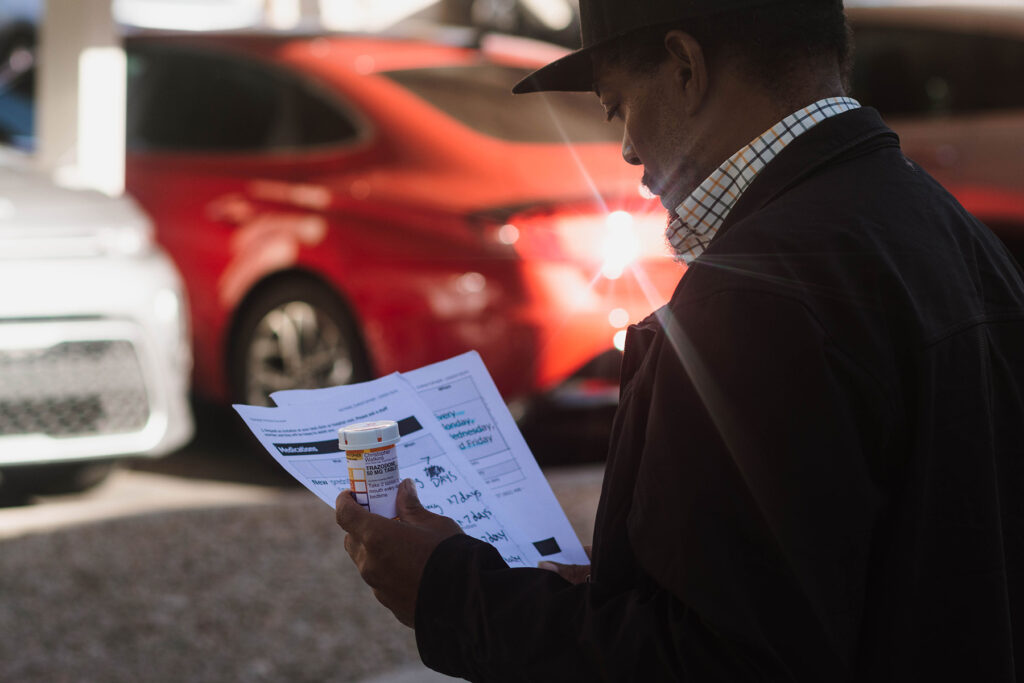
Before this perfect storm of illness and incarceration, Christopher enjoyed watching others smile. He is the youngest of three brothers and has three adult children and three grandchildren. He moved to Phoenix from California and went on to work security at different events for many years. He enjoyed his job and took pride in making others happy.
But sarcoidosis turned his life upside down. The day he was incarcerated, his medical treatment came to a sudden halt. Christopher sought the help of medical providers inside the jail but was unable to receive the care he needed because he did not have $20 for the copay.
When a person is booked into jail, the facility can get copies of their medical records. Unfortunately, Christopher’s records showed none of his updated medications, only that he required blood pressure medication. Christopher has no recollection of ever needing this medication, and when he attempted to explain to the healthcare providers what he truly needed, he was rejected. As a result, he went over three months without receiving the adequate treatment and medication.
This situation is not uncommon. People with persisting medical conditions are vulnerable to neglect in local jail systems. According to The Human Impact Report disclosed in 2020, approximately 68% of people held in local jails didn’t receive medical care. Nearly half of the people who took prescription medication stopped once incarcerated.
After about two weeks, Christopher noticed he could barely see. The harsh living conditions inside jail were accelerating his decline. Former Sheriff Joe Arpaio often boasted of the humiliating incarceration policies he imposed in Maricopa County Jails. People were forced to wear pink underwear, were served poor-quality food, and denied medical care. The county has had to pay tens of millions of dollars over the years to families whose loved ones died while awaiting trial.
When a person tests positive for Covid-19 in Maricopa County jail, the entire section of the facility goes on lockdown. The isolation added to Christopher’s anxiety, and he began to lose his appetite. He struggled to find the strength to eat or even drink water.
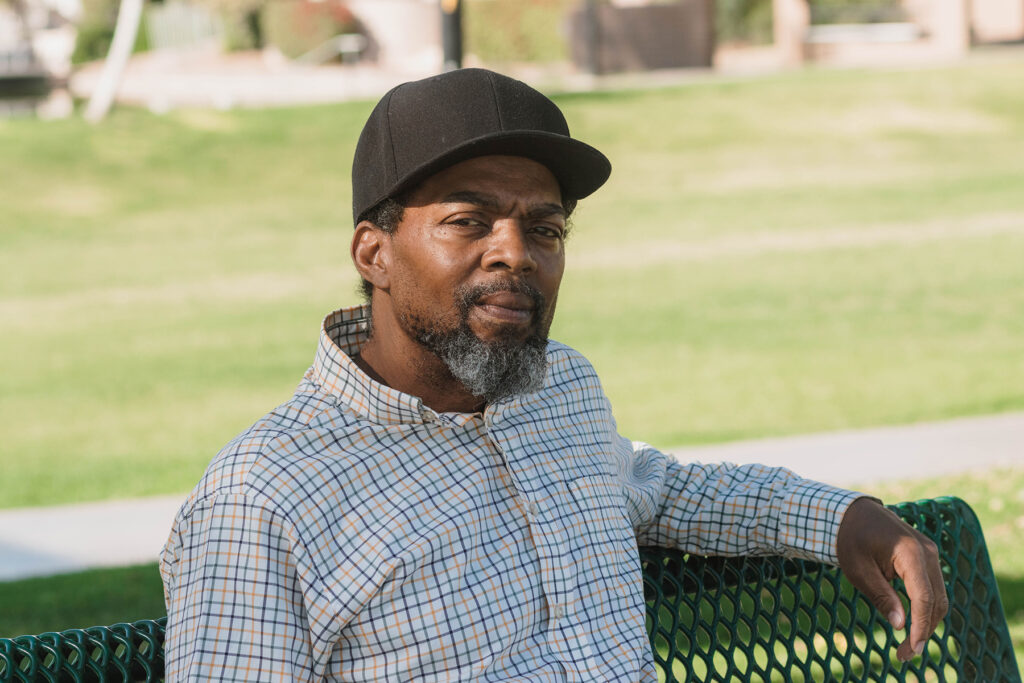
“If you guys didn’t bail me out, I probably would’ve died in that place to be honest with you,” Christopher said. “That’s the direction I felt like they were sending me to.”
Pretrial incarceration exposes people to poorly sustained and unsanitary conditions. Jail overcrowding also leads to a more rapid spread of infectious diseases, especially when an entire unit is quarantined together. These conditions can also include unregulated temperatures as well as contaminated water.
After three months behind bars, Christopher had nearly lost all hope when his son told him that he had heard from his uncle about an organization called The Bail Project. They decided to contact us. Our local staff interviewed Christopher. The next day, we posted bail, and he was released.
Christopher had to be hospitalized soon after. Because of his time in jail and away from treatment, he was now nearly blind, the headaches were as debilitating as ever, and he was beginning to lose his hearing. The doctors worked to ease his pain and stabilize his condition, but he was back to square one.
Despite this setback, Christopher feels grateful that he can finally get the care he needs. He intends to fight his pending case. Christopher was offered a plea bargain, but he refused to take it. He is confident that the footage of his arrest will show his innocence and plans to go to trial. It will be a long process.
“There was no reason for me to be removed like I was,” he said. “Without you guys, I wouldn’t have made it. I believe I would still be in jail.”
In addition to focusing on his health, Christopher is looking forward to reconnecting with his family. He is keeping up with his court dates, doctor’s appointments and medication. He is also eager to return to work and hopes to open his own security company in the future.
“I just want to become more successful and help people,” he said. “That’s the biggest thing I really want to do now.”
Thank you for reading. The Bail Project is a 501(c)(3) nonprofit organization that is only able to provide direct services and sustain systems change work through donations from people like you. If you found value in this article, please consider supporting our work today.







